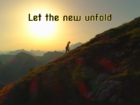There are many detailed steps to creating an official, polished album or Extended Preview and putting it up on iTunes. Once you’ve compiled all the necessary components of your EP, carefully walk through the following steps to successfully sell your music on iTunes.
1. Record high-quality songs.
When releasing an EP, you are introducing yourself to the world as a new musician. To boost your credibility and attract a loyal following, your songs should be well-produced and well-recorded. You should give people the quality they pay for when buying your songs.
An important step is mastering your recordings. During this phase, the volume and equalization of the recordings are adjusted to near-commercial quality. In its digital form, this is what will make everything sound the best. You can either do this by yourself with the proper equipment, or you can enlist the help of a professional.
2. Choose your concept.
This will help you decide on the album artwork. After settling on the final tracks you will include in the EP, try to extract a common theme among the songs. A common example is simply yourself. Many artists’ first albums center around themselves and their lives, with the album artwork being just a photo and the name of the artist.
If you’re releasing your first EP, this is definitely an option because people are just trying to get to know you and your music. Another idea is to go the creative route, aiming for a more aesthetically pleasing theme.
3. Arrange the track order.
Choosing the concept will also help you decide on the track order. Listen to your songs one time through. Is there a natural progression flowing among them? Maybe one song should definitely be the last song in the album to end everything with a bang.
A few ways you can arrange the tracks is by mood, key, tempo, or sound. As a general tip, the first song should be more upbeat and catchy because, especially if you’re planning to shop around your album to radios and labels, the first thirty seconds of the first song is the hook that determines if the rest of your album is worth a listen. To be consistent, the second track should be around the same tempo as the first one. This is a fairly minute detail, but you should definitely consider the possibility.
Notice that the first song of the album is happy and upbeat, characteristic of EXO’s music style. Then, listen to the second song in the album. It’s very similar in tempo to the first one, isn’t it?
4. Purchase a UPC number.
iTunes will not sell any of your music without a UPC number, and this applies to both digital and physical media. The easiest place to purchase a UPC number is buying a bar code from the company duplicating your CDs. This usually costs less than fifty USD. The distributor CD Baby allows you to purchase a unique bar code even without using their services to sell your music.
This is how to use TuneCore for this step.
5. Partner with a distributor.
Apple does not deal directly with independent artists; you will have to go through a major distributor due to the volume of demand. When choosing a distributor, be sure that you retain all the rights to your music. Many popular independent distributors, such as CD Baby and TuneCore, won’t make any claims on your music.
Also make sure to compare the fees of different distributors, and choose a distributor with competitive rates. Most charge around forty USD to upload an entire album, with a ten percent fee per song sold. The distributor you choose will upload your music onto their database (often doing additional mastering if necessary), where they will release the music to Apple to sell on iTunes.
There’s more to uploading on iTunes than you think. Don’t skip any of the above steps, especially the technical ones. As long as you’re confident in your music, just take your time in finding the right distributor, and everything will be smooth sailing.
Interested in getting your YouTube video discovered by masses of targeted fans? Click this link: www.promolta.com
Angelina Hue enjoys listening to a wide variety of music, from instrumental movie scores to alternative indie to Korean pop music. She also likes to make short films and write fiction.





Leave a Comment